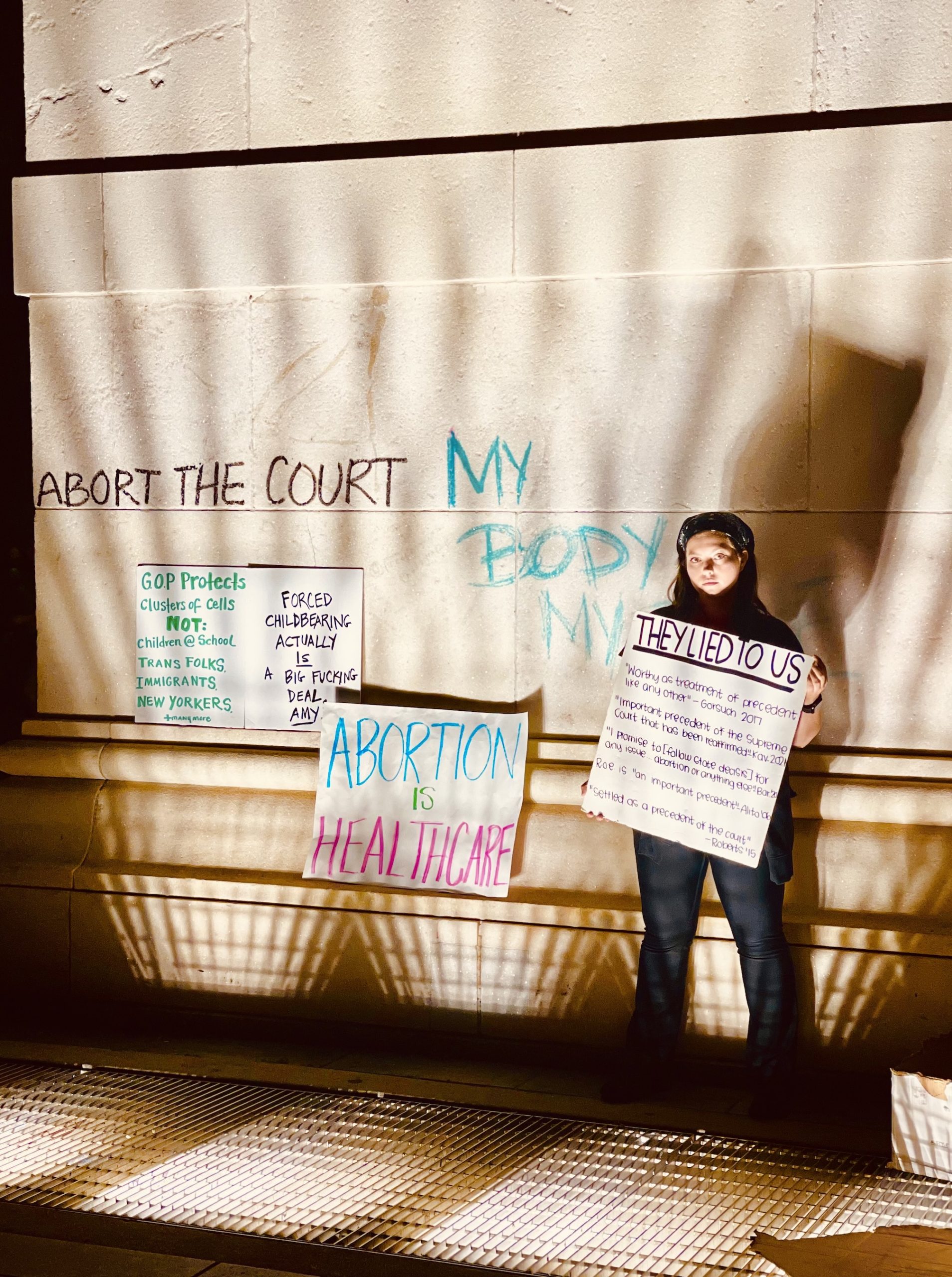What Now? U.S. Supreme Court Overturns Roe v. Wade
Here’s a comprehensive list of steps to take in this post-Roe world.

In a landmark decision, the U.S. Supreme Court voted to overturn Roe v. Wade, ending 50 years of federal abortion protection. Though the decision to overturn Roe is not a surprise (the decision was leaked to the public in May), it still deals a crushing blow to women’s rights.
The case that brought down Roe, Dobbs v. Jackson Women’s Health Organization, challenged the constitutionality of  abortion law in Mississippi, which banned all abortions after 15 weeks of pregnancy. The decision on Dobbs was 6-4, with conservative justices Clarence Thomas, Neil Gorsuch, Brett Kavanaugh and Amy Coney Barrett joining Justice Samuel Alito on the majority opinion, and Chief Justice John Roberts writing a concurring opinion.
abortion law in Mississippi, which banned all abortions after 15 weeks of pregnancy. The decision on Dobbs was 6-4, with conservative justices Clarence Thomas, Neil Gorsuch, Brett Kavanaugh and Amy Coney Barrett joining Justice Samuel Alito on the majority opinion, and Chief Justice John Roberts writing a concurring opinion.
Liberal justices Stephen Breyer, Sonia Sotomayor and Elena Kagan wrote a blistering dissent, ending with these powerful words: “With sorrow – for this Court, but more, for the many millions of American women who have today lost a fundamental constitutional protection – we dissent.”
If you are scared and sad, you are not alone. There are several steps you can (and should) take now.
Figure out the abortion laws in your state, and know your travel options
Thirteen states have trigger laws to ban abortions in the coming days and weeks, and some potentially later today. These states are: Arkansas, Idaho, Kentucky, Louisiana, Mississippi, Missouri, North Dakota, Oklahoma, South Dakota, Tennessee, Texas, Utah, and Wyoming.
Alabama, Arizona, West Virginia and Wisconsin have un-enforced pre-Roe bans, which will continue to severely limit abortion rights.
As of now, abortion is still legal in California, Colorado, Connecticut, Delaware, Hawaii, Illinois, Maine, Maryland, Massachusetts, Nevada, New Jersey, New York, Oregon, Rhode Island, Vermont, Washington, and Washington DC.
Take a look at POLITICO for an in-depth map and explainer of state-by-state abortion laws.
Should you live in a state with an abortion ban, your employer might cover any necessary travel and healthcare costs associated with getting an abortion. If not, know your options in terms of traveling to a state where abortion is legal.
You can call 1-800-230-Plan, or visit abortionfinder.org to find a verified abortion provider.
Donate to abortion funds
Now more than ever, abortion funds need your help. There are several national abortion funds accepting donations, such as The National Network of Abortion Funds, National Abortion Federation, and The Brigid Alliance.
States like Alabama, Arkansas, Mississippi, Oklahoma, Louisiana, Texas, Utah, West Virginia, and Wyoming are in dire need of support as well. Click each state to be redirected to their abortion fund.
Attend a march
WeWontGoBack.com can direct you to find any marches for abortion rights in your area. In New York, there is a Bans Off Our Bodies march happening in Union Square on June 24 at 8:00 pm.
Remember your contraception options, and plan ahead
There are three main categories of contraceptives: over-the-counter, prescription, and medical.
Over the counter options include condoms, emergency contraceptives (Plan B, take within 72 hours), and spermicide gel. Contraceptives that require a prescription include birth control pills, patches, or vaginal rings (NuvaRing or Annovera), and emergency contraceptives (Ella, take within 5 days). Medical options include IUDs (copper or hormonal), shots, arm implants, tubal litigation, and vasectomies.
Discover More
